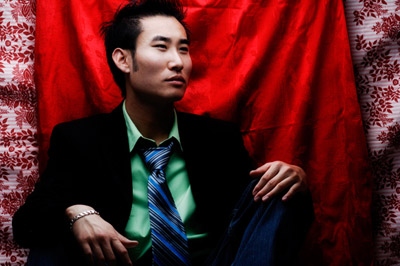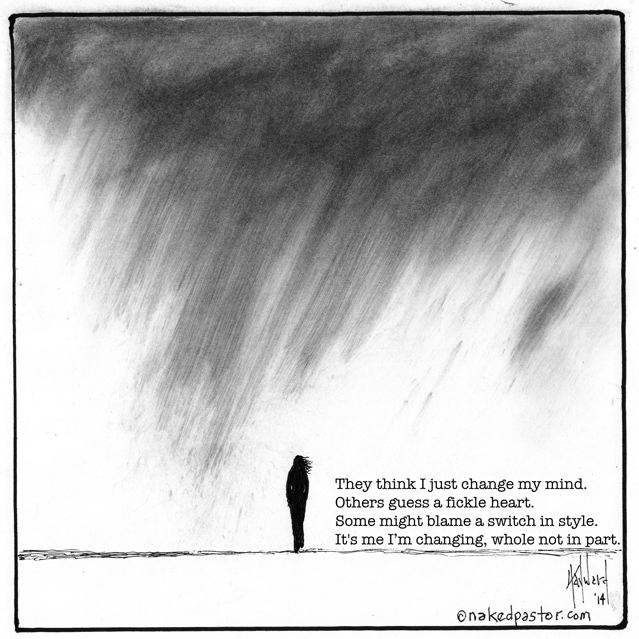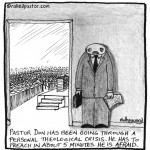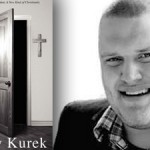 Toby Selwyn, the young and articulate atheist over at A Load of Bright, has written an article and posted it recently on his site. The post is called A Humanist Lesson: The Prayer of Serenity. He has kindly invited me to respond to it. Rather than just leave a comment on his post, which I have, I want to post about it myself.Toby rightly points out that the great American theologian Reinhold Niebuhr created the now famous “serenity prayer”, used by Alcoholics Anonymous for years. Here it is in full:
Toby Selwyn, the young and articulate atheist over at A Load of Bright, has written an article and posted it recently on his site. The post is called A Humanist Lesson: The Prayer of Serenity. He has kindly invited me to respond to it. Rather than just leave a comment on his post, which I have, I want to post about it myself.Toby rightly points out that the great American theologian Reinhold Niebuhr created the now famous “serenity prayer”, used by Alcoholics Anonymous for years. Here it is in full:
God grant me the serenity to accept the things I cannot change, courage to change the things I can, and (the) wisdom to know the difference.
Toby believes it is “one of the most deeply profound maxims ever to emerge from Christianity, or any religion for that matter.” He goes on to say, though, that he must “reject, for obvious reasons, are the first three words, ‘God grant me’.” He believes that this “prayer” can be accomplished without God, and, as a humanist, he believes we can “strive to achieve these traits for ourselves, without any divine intervention, simply by making an effort each day.” Toby applies the prayer to the hopeful decline and eventual elimination of religion because of its obvious harmfulness to society: we can’t change the harm religion has done in the past, so we must serenely move on; we must courageously overcome the dangerous influence of religion in our society; and we must know the difference between harm done and the harm that can be prevented from religion. I hope, Toby, that I have summarized your post to your satisfaction.
First of all, I would like to point out that Toby begins his post by writing that, “Christians believe that their holy text, the Bible, is the inerrant word of God. They believe it can be referred to as a complete guide on how to live your life and secure salvation.” Niebuhr wouldn’t fall neatly under this definition of what a Christian is, nor would his view of Scripture meet this criteria. He is considered, by many Christians, a liberal, who can be said “argued that biblical stories were mythical rather than historical, and taught that Jesus had a sinful nature.” I say this only to again point out that, just like atheists cannot be described as a homogeneous group, neither can Christians, at least philosophically or theologically.
Another point I’d like to make is that even though Toby would like to see the prayer dissected of “God grant me”, thereby making it no longer a prayer but a “maxim”, we should know that Niebuhr intentionally created this as a prayer because of his theology. Niebuhr grew up during the Great Depression and lived through both World Wars. He was convinced theologically and experientially of the sinfulness of human nature, and that both individuals and groups were hopelessly caught in egotism. He believed that reason was ultimately limited to solve social injustice because our rational capacities as human beings are, at their root, self-serving. He believed that we cannot, simply by thinking or willing it, make ourselves moral. In fact, Niebuhr taught that the egotism of the individual only becomes more powerful when collected into a group, to the extent that an individual’s egotistical will-to-live takes on the more evil will-to-power, that is, coercion becomes the modus-operendi of the group.
This is why Niebuhr wrote this as a prayer. He believed he was unable to achieve serenity, courage and wisdom by his own power. He knew and saw the ultimate moral weakness and unrestrained evil of, not religion, but all humans and society. His isn’t a pessimistic view of the human race, but one which demanded the exacting exercises of contrition and love.
So, Toby, although your edited “maxim” is admirable, noble, and indeed humane, Neibuhr would say that by yourself it is impossible. Alone, we are basically egocentric creatures who will only use serenity, courage and wisdom to achieve our own selfish ends.
The fine art photograph is the creation of my friend Mark Hemmings. It has nothingn to do with this article. I just like it!











